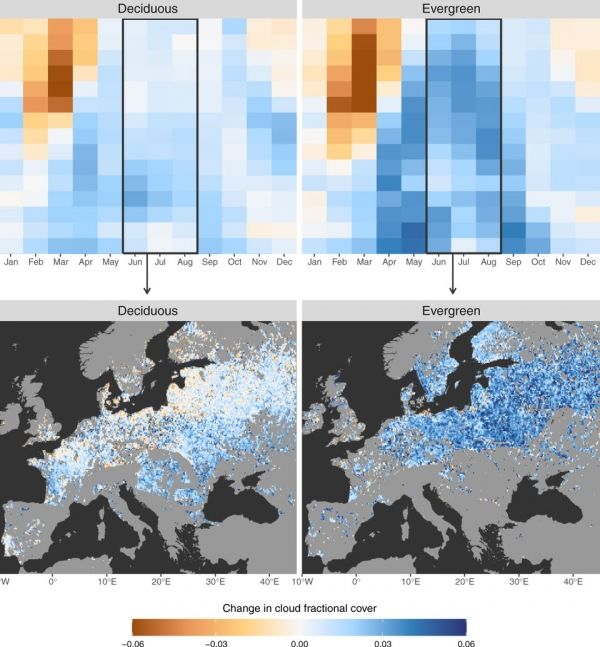A first global assessment using satellite observations has shown that for two-thirds of the world, afforestation increases low-level cloud cover, with the effect being strongest over evergreen needleleaf forest.
Because trees sequester carbon dioxide from the atmosphere and convert it into biomass, forests are widely championed for their role in mitigating climate change. What has been less clear, however, is how forests affect the climate in other ways such as their role in the water cycle and surface energy balance.
The paper, published recently in Nature Communications, uses global data records of cloud and land-fractional cover produced by ESA’s Climate Change Initiative to examine the effect of the transition of vegetation cover into deciduous and evergreen forest.
“Earth observations are increasingly showing that trees and forests are impacting climate by affecting biophysical surface properties,” says one of the co-authors of the study, Alessandro Cescatti.
Continue reading at European Space Agency
Image via European Space Agency


